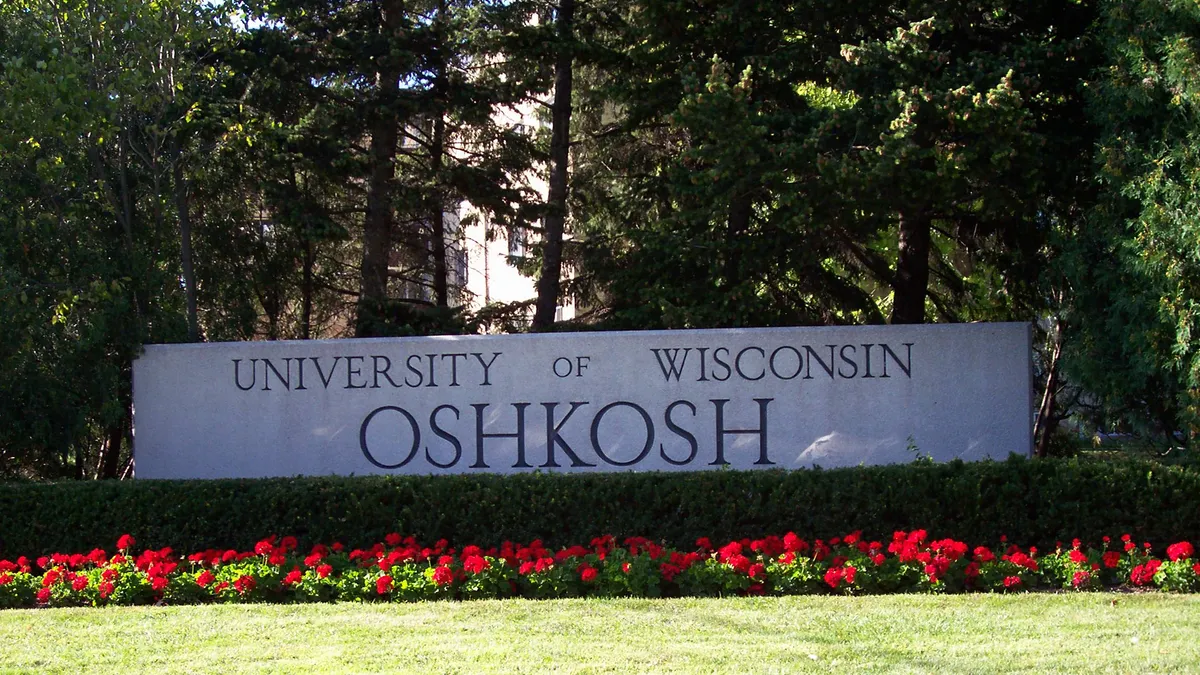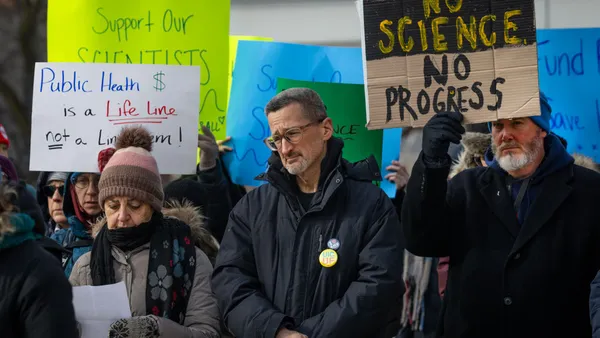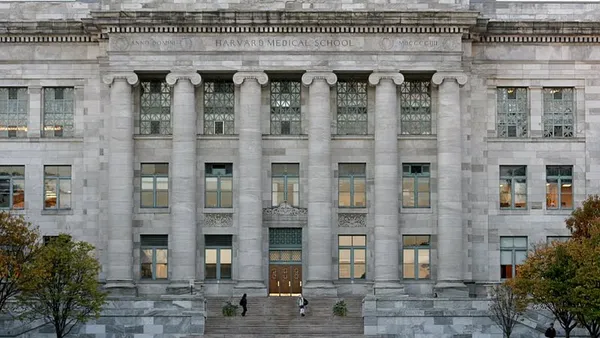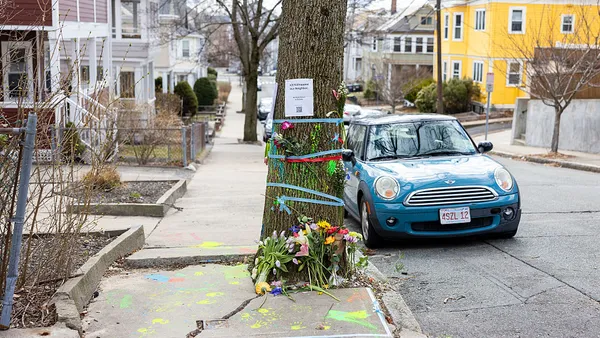Dive Brief:
- The head of the Universities of Wisconsin system plans to ask for $855 million in new state funding over the next two fiscal years in a push to catch up with other states.
- In a release, system President Jay Rothman pointed to Wisconsin’s ranking of 43rd among states in funding levels per full-time equivalent students at four-year public institutions, per an annual report from the State Higher Education Executive Officers Association.
- “It’s time Wisconsin stops falling behind,” Rothman said in a video conference Monday during which he unveiled the new funding request. “Our universities have become increasingly more tuition-dependent, and that’s not good for our students.”
Dive Insight:
Based on SHEEO figures, Wisconsin would need to spend an additional $457 million annually to reach the median funding levels of states, according to Rothman.
Rothman’s plan, dubbed “Up to the Middle,” would freeze tuition during the period covered by the public revenue increase.
“We won’t win the War for Talent if we don’t get Up to the Middle,” Rothman said in a statement. “We’re falling behind after years of neglect, and this budget seeks to address that trend.”
Rothman plans to submit the proposal to the system’s board of regents Thursday, after which the request would go to Wisconsin Gov. Tony Evers for his 2025-27 budget proposal.
Along with boosting state funding, Rothman’s proposal would extend the state’s tuition promise — which covers tuition and fees for lower-income students — to enrollees from families earning up to $71,000 in adjusted gross income.
The program was suspended in 2024 after lawmakers declined to fund it. But it will return beginning in fall 2025 at 11 of the system’s universities for students whose families earn $55,000 or less. The other two institutions in the system, University of Wisconsin-Madison and University of Wisconsin-Milwaukee, have their own promise programs.
Rothman’s proposal also would raise wages by 5% for staff and 3% for faculty, as well as create a new artificial intelligence hub.
Rothman has been vocally calling for more state funding this year, with many of the state’s public universities facing steep budget deficits and dwindling financial reserves.
If Evers, a Democrat, took up Rothman’s funding request, he could face an uphill battle if the state’s legislature remains in Republican control. The governor has clashed with Republican lawmakers in the past, including over funding and DEI programming.
“While we will do our part on the expense side of the ledger, ultimately it is up to the state to decide whether it wants and can afford a weakened Universities of Wisconsin,” Rothman said this spring when unveiling in-depth financial reports on the system’s universities.













